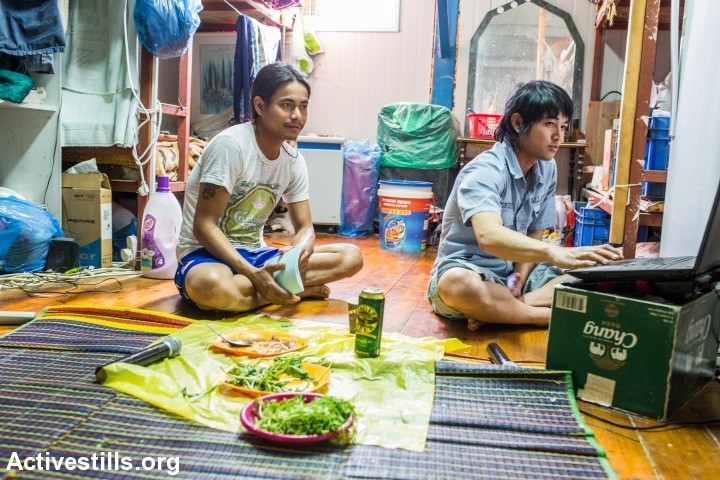According to numbers provided by Minister of Health Yael German to MK Dov Khenin (Hadash), 122 farm laborers from Thailand died in Israel between 2008 and 2013. Forty-three of them died from what is termed “sudden nocturnal death syndrome,” which affects young and healthy Asian men. This cause of death was twice as common as death due to complications of cardiac disease, which is one of the leading causes of death in Israel. The youngest laborer to die was 23 years old and the oldest was 42. The average age of the laborers who died was 35.
The data, published in “Haaretz” for the first time, also show that there were five cases of suicide and four cases of murder in this period. In 22 cases (almost 20 percent of the total) there were no postmortems, so the cause of death could not be established. The data relates only to Thai workers, although other nationals also work in agriculture, albeit in far smaller numbers.
MK Khenin says that “it is inconceivable that so many workers and healthy young men die without alarms going off. These numbers call for a thorough investigation which should include looking into working conditions under which these laborers are employed. Foreign workers are also human beings, and their lives and health should be taken seriously.” In some of the deaths it appears that employers and employment agencies are only too happy to rush and embrace the “sudden nocturnal death syndrome” as a force majeure explanation which cannot be prevented. This topic keeps cropping up during visits by Kav LaOved, a voluntary organization that look after foreign workers, along with complaints about living and work conditions.
“We encounter numerous problems related to medical care,” says Noa Schauer, who deals with agricultural workers at Kav LaOved. “Despite substantial payments to insurance companies most of the workers do not receive the HMO cards and are not aware of their right to go to a clinic or hospital. They are totally dependent on their employers if they wish to leave the farm. Many workers said that they don’t want to complain of illness since they worry about being fired. In addition, they don’t get paid for sick days so they prefer working rather than seeking help.” Schauer has encountered laborers “who order painkillers from Thailand since they can’t get to a pharmacy in an adjacent town on a day it is open. On another moshav some workers told us that they never get the time to go to a clinic even though they know its location. Even if they go, how can they explain their problem? The state brings these workers in a regulated manner but does not give them free and equal access to medical services.”



